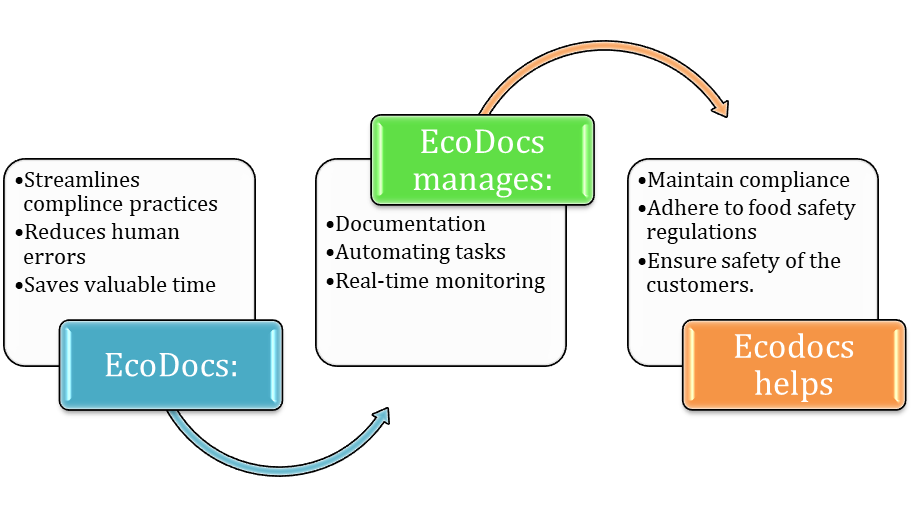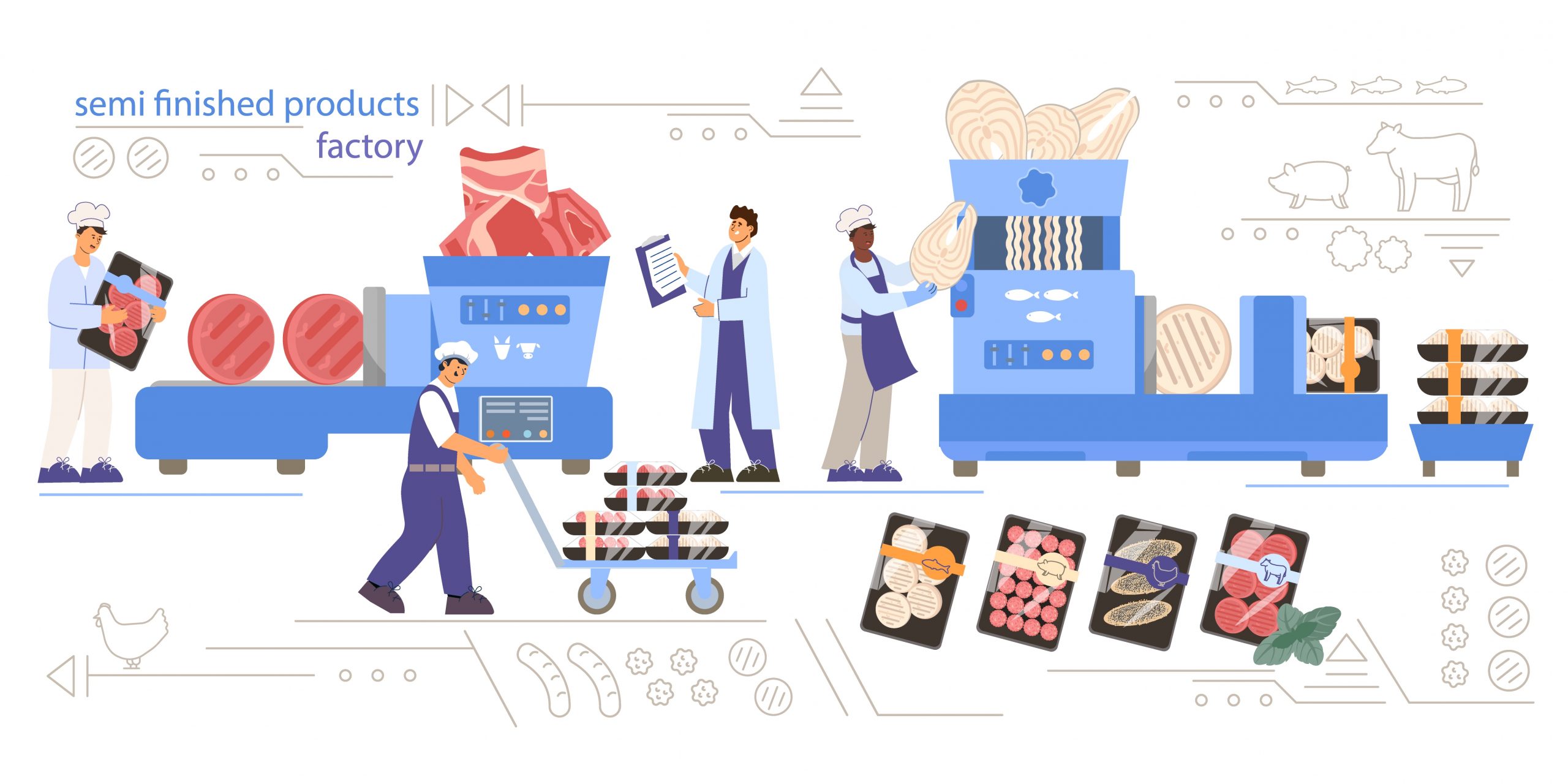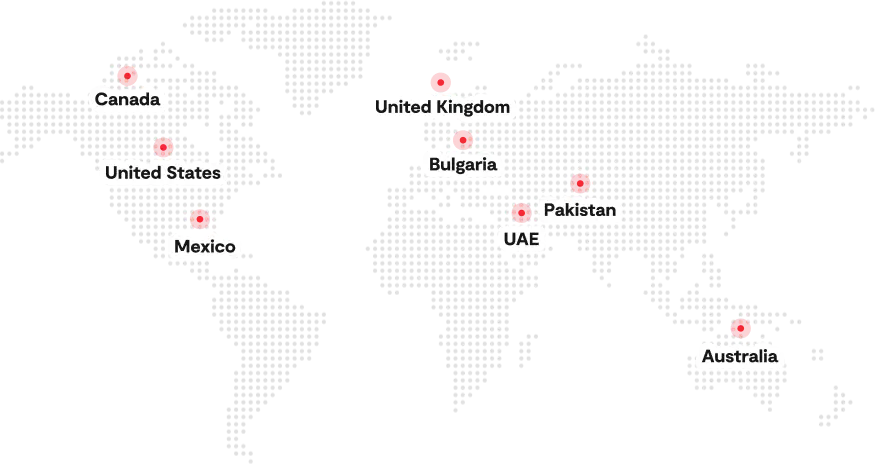What could ever possibly be scarier than a pandemic? Living in a world where the basic need of food and shelter is compromised?
Well, lucky for us, the FDA Food Code is here to save us. Now, let’s dive into how it actually works.
We all know how important food safety regulations are. They ensure that the food produced and consumed poses no potential threat to the general public and that the food is properly handled, prepared, and served to the consumers.
Now comes our lifesaver: the FDA Food Code, which plays an eminent role in setting relevant FDA food safety guidelines that ensure the safety of the food we intake by:
- Establishing standardized practices and requirements
- Helping prevent foodborne illnesses
- Maintaining consistent food safety practices
The FDA’s food code, therefore, holds authority and expertise, which makes it even more crucial to follow and respect the entirety of the food industry, upholding the utter trust and confidence of the regulatory bodies and the food businesses.
All You Need to Know About FDA Food Codes:
FDA product codes are labeled on each product, which makes them distinctive from others. Each product carries a code, which is a combination of five to seven numbers and letters.
FDA code empowers FDA to supervise the manufacturing, cosmetic label printing, distribution, and marketing of drugs, medical devices, and cosmetic products so that it can set absolute standards for the safety and quality of the product for its regulation.
It monitors food imports and investigates foodborne diseases to protect consumers from unsafe or infected food, as the FDA code includes the conditions for ensuring the protection of the national food supply.
Although cosmetic products do not require approval before being marketed, the FDA sets food safety guidelines for safety and has the authority to take action against unsafe products and impose labeling requirements.
Standardization and quality control standards for various industries to maintain consistency, degree, and safety across the products so that customers can have confidence in the items they purchase.
FDA code sets out the processes for conducting clinical trials and biologics to assure strict scientific evaluation to determine the usefulness of the items before they reach the market.
FDA code includes post-marketing surveillance and monitoring of the products already marketed, this helps identify the adverse reactions of the items entitling the FDA to take proper and appropriate actions for public advancement.
Development and Production of the FDA Food Code:
The FDA Food Code has given us years of trusted service and support in implementing food safety regulations. It might even be safe to say that it has made survival a bit more convenient by safeguarding public health in the food service industry.
It basically operates through the productive insight of various professional government bodies and stakeholders such as:
- Regulatory agencies
- Industry professionals
- Public health experts
The FDA food code itself also goes through periodic regulation and is updated every now and then with the help of:
- Scientific research
- Emerging trends
- Public health concerns
This allows it to be at the top of its game by showcasing the most expert practices by:
- Addressing challenges and problems in food safety
- Promoting consistency
- Promoting uncompromised safety in the food safety industry.
| Food code versions | States in 2016 | States in 2017 | States in 2018 | States in 2019 | States in 2020 | States in 2021 | States in 2022 |
| 2022 | — | — | — | — | — | — | 2 |
| 2017 | — | — | 4 | 8 | 15 | 18 | 16 |
| 2013 | 15 | 20 | 21 | 20 | 18 | 16 | 16 |
| 2009 | 22 | 17 | 15 | 14 | 10 | 9 | 9 |
| 2005 | 5 | 5 | 4 | 2 | 2 | 2 | 2 |
| 2001 | 4 | 4 | 4 | 4 | 4 | 4 | 4 |
| 1999 | 2 | 2 | 1 | 1 | 0 | 0 | 0 |
| 1997 | 1 | 1 | 0 | 0 | 0 | 0 | 0 |
| 1995 | 1 | 1 | 1 | 1 | 1 | 1 | 1 |
| Not adopted | 1 | 1 | 1 | 1 | 1 | 1 | 1 |
- Statistics on the adoption of the FDA food code in the U.S from 2016 to 2022
- Source: https://www.fda.gov/media
Role of the FDA food code:
The FDA is the leading regulatory body that provides all the reference documents relevant to the drug and health products. The codes serve as a means to ensure the product’s safety and efficacy. The rule is to be followed by all the regulatory companies and businesses falling under different criteria. It provides science-based recommendations and best practices to ensure the safe handling, preparation, and storage of food in retail and food service establishments.
FDA food codes provide a framework for the regulatory bodies that use the FDA Food Code as a model to develop or update their own food safety rules and to be consistent with national food regulatory policy. Between 1993 and 2001, the Food Code was issued every two years, and later, it was modified enough that now it’s just updated every 4 years. Thanks to the Conference for Food Protection (CFP), the FDA has decided to move to a four-year interval between complete Food Code editions. During the interim period between full editions, the FDA may publish a Food Code Supplement that updates, modifies, or clarifies certain provisions. The 2005 Food Code was the first version which was followed by a newer one in 2007. The latest edition of the Food Code standards was established in 2022.
Benefits of complying with the FDA food code for food establishments and consumers:
To “encourage widespread, uniform, and full adoption of the FDA Food Code,” one of the objectives of the Food and Drug Administration’s (FDA) Retail Food Safety Initiative1 is stated.
To do this, the FDA emphasizes the advantages of full adoption of the Food Code by State, territorial, local, and tribal governments. As statutes, codes, and ordinances relevant to retail food safety are revised at all levels of government, the retail store, food service, and vending industries should acknowledge these benefits and contribute to promoting complete and widespread implementation of the Food Code standards. Complying with the FDA food code benefits both food establishments and consumers.
It benefits us by:
- Lowering the toxic elements present in the food that people consume.
- Lowering the likelihood of foodborne diseases in restaurants, safeguarding consumers and the economy from negative health effects and monetary damages.
- Improving the understanding of consumers about safe products that they can use.
- Uniform regulations simplify the process and improve compliance for retail food safety.
- The termination of pointless procedures for developing standards for food safety.
- The adoption of a more uniform methodology for food establishment audits and inspections.
- Establishing a uniform, common language for food safety will help industry operators and regulators communicate more effectively.
- Encouraging industry and regulators to have a shared knowledge of risk, risk control/management, and food safety.
- Ensuring the best distribution of food to the consumer
- Taking over the regulation of products seems to have a negative impact on consumers’ health.
- Enforcing their laws, they allow food suppliers to deliver quality food.
The FDA food code benefits consumers, distributors, and the government. It lists the most critical law among 200 other essential rules.
Streamline Compliance with EcoDocs: The Digital Solution for FDA Food Code Compliance:
Folio3’s brilliantly crafted food safety management software EcoDocs streamlines efficient compliance with the FDA food code. It is a one-of-a-kind digital solution that offers various benefits for food businesses that invest a great deal in maintaining compliance with food safety regulations. This compliance aids in:
- Enhancing efficiency
- Increasing accuracy
- Saving valuable time
Here are some of its remarkable benefits:
Centralized Documentation: EcoDocs offers all necessary documentation for streamlining compliance such as:
- Standard Operating Procedures (SOPs)
- HACCP Plans
- Training records
- Inspection checklists
Automated Task Management: EcoDocs is a lifesaver for its users. It alerts them with reminders and notifications to keep them updated with different tasks and needs such as
- Routine inspections
- Employee training
- Documentation/records
This allows its users to efficiently comply with the regulatory requirements, reducing the chances of penalties.
Real-time monitoring: EcoDocs follows a proactive approach that allows its users to track relevant information in real-time, which greatly reduces the chances of violations. This also helps them keep a keen eye on areas that require improvement and supervision and allows them to take corrective actions whenever needed.
Customization: EcoDocs offers customizable templates for documents and records. This allows businesses to make data-driven decisions by:
- Generating comprehensive reports
- Enabling them to analyze trends
- Identify recurring issues
- Take corrective actions
Regulatory Updates and Alerts: EcoDocs is a smart app that automatically updates according to changes in the FDA Food Code. It also keeps users well-informed, allowing them to easily comply with the latest food safety regulations. This feature saves time and effort in terms of researching and planning.
Enhanced Collaboration and Communication: This cloud-based digital software solution promotes collaboration by allowing multiple users access to the same records. It also provides forums on which different members can:
- Share important updates
- Discuss compliance-related matters
This promotes transparency and accountability in the industry.

FAQs:
Q- What is the purpose of the FDA Food Code?
The sole purpose of the FDA is to ensure the safe and effective use of drugs and food items.
FDA acts in accordance with the principles for food safety practices in the United States. During the code’s development, the FDA collaborates with representatives from the food industry, state and local regulatory agencies, academia, and other stakeholders to gather expertise and input.
Q- How often is the FDA Food Code updated?
FDA updates the food codes just every 4 years, which is endorsed by the jurisdictions, too. The jurisdictions must be followed by all the concerned parties, including restaurants, food service operations, and retail businesses.
Q- Who contributes to the development of the Food Code?
FDA takes charge of producing the food codes. While the other major regulatory agencies also contribute to its development. These regulatory bodies, including the United States Department of Agriculture (USDA), and the Centers for Disease Control and Prevention (CDC), regularly contribute significant inputs.
Q- What happens if a state adopts a different version of the Food Code?
When the FDA changes the food code, it changes the way of inspection by adding more categories and making it tougher. This may spike anger in some restaurants, but at the end of the day, the main priority of the FDA is to ensure quality food for the consumer.
Q- How does the FDA enforce the Food Code?”
FDA enforces the food code by making laws for the manufacturing of products like tobacco control act was enacted in 2009 which gave authority to the FDA to regulate the manufacturing and distribution of tobacco.




